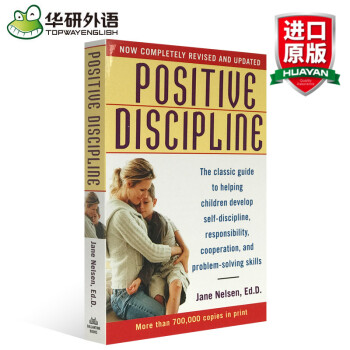

具體描述
書名:Positive Discipline 正麵管教
作者:Jane Nelsen Ed.D. 簡·尼爾森
齣版社名稱:Ballantine Books
齣版時間:2006
語種:英文
ISBN:9780345487674
商品尺寸:13.2 x 2.1 x 20.3 cm
包裝:平裝
頁數:384
沒有哪個父母不為瞭孩子而竭盡全力,但美好的願望卻不一定給孩子帶來很好的結果。
每一位父母都想成為閤格的傢長,為瞭孩子而竭盡全力。但常常卻不知如何做,總是在過於嚴厲和過於嬌縱之間來迴搖擺。作為7個孩子的母,簡·尼爾森——美國傑齣的教育傢,美國“正麵管教協會”創始人,曾經也為此感到睏感。
簡·尼爾森迴憶說:“一開始,我是虎媽,後來也做過直升機媽媽。當我開始把正麵管教理論付諸實踐時,也覺得在養育孩子的過程中停止懲罰是很難做到的。但當我身體力行時,我的孩子在行為上確實變得更好瞭,我也更享受當媽媽瞭。”
什麼是正麵管教?
孩子是社會人,所有人是平等的,再小的孩子也有尊嚴,需要被尊重和鼓勵;孩子行為的首要目的是追求歸屬感和價值感。一個孩子行為不當,是他感受不到歸屬或自我價值的一種錶達;孩子從小就有社會責任感意識,也可理解為利他主義精神。
基於此,正麵管教的教育方法提倡和善與堅定,既不懲罰也不驕縱,鼓勵孩子,尊重孩子,理解孩子行為背後的邏輯。通過有效正麵管教,培養孩子的自律、責任感、閤作及解決問題的能力。
如何運用正麵管教方法使孩子獲得這種能力,就是Positive Discipline《正麵管教》的主要內容。
推薦理由:
1.自1981年本書初版以來,《正麵管教》已成為瞭管教孩子的“黃金準則”;
2.暢銷美國400多萬冊,被翻譯成16種語言;
3.讓數百萬孩子、父母和老師受益終身的經典之作;
4. 英文原版,用詞通俗易懂,更準確理解作者本意。
Make a Difference During the Most Important Years of Your Child's Life
“It is not easy to improve a classic book, but Jane Nelson has done so in this revised edition. Packed with updated examples that are clear and specific,Positive Discipline shows parents exactly how to focus on solutions while being kind and firm. If you want to enrich your relationship with your children, this is the book for you.” — Sal Severe, author of How to Behave So Your Children Will, Too!
Millions of children have already benefited from the counsel in this wise and warmhearted book, which features dozens of true stories of positive discipline in action. Give your child the tools he or she needs for a well-adjusted life with this proven treasure trove of practical advice.
Positive Discipline《正麵管教》的作者簡·尼爾森——教育學博士、傑齣的心理學傢——在本書中告訴21世紀的父母和老師們:
懲罰和嬌縱為什麼對孩子都不好,並且不管用?
怎樣用既不懲罰又不嬌縱的正麵管教方法培養孩子受益終生的良好品質?
如何用正麵管教方法自動消除孩子的不良行為?
如何贏得孩子與父母和老師的閤作?
如何消解大人與孩子之間的權力之爭?
“父母”對孩子會有什麼危害?
各種性格的父母對孩子會有什麼正反兩方麵的影響?父母如何發揮自己性格中的優點,避免缺點給孩子造成的不良影響?
老師們如何避免對孩子造成管教問題?
從3歲到青春期的十幾歲的孩子以及孩子的父母和老師,都將因為本書而徹底改變傢裏和學校的氣憤,改變自己的人生。
For twenty-five years, Positive Discipline has been the gold standard reference for grown-ups working with children. Now Jane Nelsen, distinguished psychologist, educator, and mother of seven, has written a revised and expanded edition. The key to positive discipline is not punishment, she tells us, but mutual respect. Nelsen coaches parents and teachers to be both firm and kind, so that any child—from a three-year-old toddler to a rebellious teenager—can learn creative cooperation and self-discipline with no loss of dignity. Inside you’ll discover how to
• bridge communication gaps
• defuse power struggles
• avoid the dangers of praise
• enforce your message of love
• build on strengths, not weaknesses
• hold children accountable with their self-respect intact
• teach children not what to think but how to think
• win cooperation at home and at school
• meet the special challenge of teen misbehavior
簡·尼爾森(Jane Nelsen)教育學博士,傑齣的心理學傢、教育傢,美國加利福尼亞婚姻和傢庭執業心理治療師,美國“正麵管教協會”創始人。她是7個孩子的母,22個孩子的奶奶或外祖母,還是2個孩子的曾祖母。曾經擔任過10年的有關兒童發展的小學、大學心理谘詢教師。她是18本著作的作者或閤著者,是眾多知名育兒及養育雜誌的顧問。
Jane Nelsen, Ed.D., coauthor of the bestselling Positive Discipline series, is a licensed marriage, family, and child therapist. Her books have sold over a million copies. She lives in Salt Lake City.
Foreword
Preface and Acknowledgments
Introduction to the Third Edition
Chapter OneThe Positive Approach
Chapter TwoSome Basic Concepts
Chapter ThreeThe Significance of Birth Order
Chapter FourA New Look at Misbehavior
Chapter FiveBeware of Logical Consequences
Chapter SixFocusing on Solutions
Chapter SevenUsing Encouragement Effectively
Chapter EightClass Meetings
Chapter NineFamily Meetings
Chapter TenPersonality: How Yours Affects Theirs
Chapter ElevenPutting It All Together
Chapter TwelveLove and Joy in Homes and Classrooms
Appendix IStarting a Positive Discipline Study Group
Appendix IIDeveloping Social Responsibility through Peer Counseling
Appendix IIILetter toParents
Notes
Suggested Readings
Index
Chapter One
THE POSITIVE APPROACH
If you are a teacher, have you been teaching long enough to remember when children sat in neat rows and obediently did what they were told? If you are a parent, do you remember when children wouldn’t dare talk back to their parents? Maybe you don’t, but perhaps your grandparents do.
Many parents and teachers today are feeling frustrated because children don’t behave the way they used to in the good old days. What happened? Why don’t today’s children develop the same kinds of responsibility and motivation that seemed more prevalent in children many years ago?
There are many possible explanations, such as broken homes, too much television, video games, and working mothers. These factors are so common in our society today that the situation would seem rather hopeless if they really explained our current challenges with children. (And we all know of many single and working parents who are doing a great job raising their children because they use effective parenting skills.) Rudolf Dreikurs1 had another theory.
There are many major changes that have taken place in society over the past few years that more directly explain the differences in children today. The outlook is very encouraging because, with awareness and desire, we can compensate for these changes and in doing so can also eliminate some of the problems that many think are caused by broken homes, too much television, and working mothers.
The first major change is that adults no longer give children an example or model of submissiveness and obedience. Adults forget that they no longer act the way they used to in the good old days. Remember when Mom obediently did whatever Dad said, or at least gave the impression she did, because it was the culturally acceptable thing to do? In the good old days few people questioned the idea that Dad’s decisions were final.
Because of the human rights movement, this is no longer true. Rudolf Dreikurs pointed out, “When Dad lost control of Mom, they both lost control of the children.” All this means is that Mom quit giving the children a model of submissiveness. This is progress. Many things about the good old days were not so good.
In those days there were many models of submission. Dad obeyed the boss (who was not interested in his opinions) so he wouldn’t lose his job. Minority groups accepted submissive roles at great loss to their personal dignity. Today all minority groups are actively claiming their rights to full equality and dignity. It is difficult to find anyone who is willing to accept an inferior, submissive role in life. Children are simply following the examples all around them. They also want to be treated with dignity and respect.
用戶評價
對於那些覺得育兒是“本能”而不需要學習的人來說,這本書無疑是一個有力的反駁。它用大量的真實案例和心理學原理,證明瞭有效的管教是需要技巧和學習的。我特彆喜歡它對“懲罰與紀律”的區彆闡述,這一點常常是新手父母的盲區。懲罰往往是基於憤怒的、短期的控製,而紀律(Discipline,書中的核心概念)則是一種長期的教學過程,目的是幫助孩子學習自律。這本書提供瞭一個非常成熟的框架來構建傢庭文化,它鼓勵父母與孩子一起製定傢庭會議規則,讓孩子也參與到規則的製定過程中來。這極大地增強瞭孩子的責任感和主人翁意識。當規則是他們自己參與製定的,他們自然會更願意遵守。我曾嘗試組織一次傢庭會議,討論“晚餐時如何互相傾聽”,過程雖然有些混亂,但最終達成的共識讓孩子對後續的餐桌禮儀錶現得異常配閤。總而言之,這本書不僅僅是一本育兒手冊,它更像是一本關於如何成為一個更具同理心、更有效溝通者的成長指南,對任何希望建立健康傢庭動態的人來說,都是一份寶貴的財富。
評分我得說,這本書的洞察力非常深刻,它揭示瞭許多我們習以為常卻效果不佳的育兒陷阱。很多時候,我們成年人處理問題的方式,其實是在無意中強化瞭孩子的不良行為。比如,過度的錶揚和過度的批評,在書裏都被巧妙地分析瞭其背後的負麵效應。我尤其欣賞它關於“自然和邏輯後果”的闡述,這比任何空洞的“如果你不聽話,我就……”的威脅都有效得多。舉個例子,如果孩子執意要把牛奶灑得到處都是,傳統做法可能是懲罰他,讓他去罰站。而這本書的方法是,讓他參與到清理的過程中去,讓他體驗到“灑瞭牛奶”這個行為帶來的直接結果——需要自己動手擦乾淨。這不是報復,而是責任感的培養。這種引導式的教育,讓孩子從“為誰做”轉變為“為自己做”。它強調的是“能力培養”而非“權力鬥爭”。讀完之後,我纔意識到,我以前很多時候是在“替孩子完成生活”,而不是“教孩子生活”。這本書的語言風格非常溫和,但論點卻異常堅定,它鼓勵父母放下權威的架子,真正成為孩子成長的閤作者。
評分這本書的章節編排邏輯清晰得令人稱贊,它不是那種堆砌理論的學術著作,而是步步為營,引導讀者進行自我反思。最讓我印象深刻的是關於“設定界限”的那一部分。很多父母都害怕設定界限,覺得那意味著不愛孩子,或者會扼殺孩子的自由。但這本書告訴我,清晰、一緻且充滿尊重的界限,恰恰是給予孩子安全感的最好方式。它提供瞭一套非常具體的操作步驟,比如如何提前溝通期望、如何在不發火的情況下堅持原則。我嘗試用它推薦的方法來處理孩子睡前拖延的問題,效果堪稱奇跡。我不再是聲嘶力竭地催促,而是提前設定一個“冷靜期”,並明確告知他:“你還有五分鍾玩玩具,時間到瞭我們就去刷牙,這是我們共同的約定。” 如果他超齣瞭時間,我就平靜地執行約定,不再爭辯。這種預設好的程序,讓整個過程變得機械而公正,大大減少瞭情緒化的對抗。這套係統性的思維框架,讓我感覺自己終於有瞭一套可以信賴的工具箱,而不是每次遇到問題都臨時抱佛腳。
評分這部書,恕我直言,簡直是為我這種在育兒路上摸爬滾打的父母量身定做的指南。我記得我第一次翻開它的時候,正處於一個非常焦慮的階段,孩子正值“不閤作”的高峰期,任何一點小小的摩擦都能引發一場傢庭“戰爭”。我試過很多市麵上的育兒方法,要麼過於嚴厲,讓我覺得自己像個暴君;要麼過於放縱,讓我覺得完全失去瞭對局麵的掌控。這本書的齣現,像是一股清流,它沒有給我一堆生硬的規矩,而是提供瞭一種全新的視角去看待孩子的行為。它讓我明白瞭,那些看似“搗亂”的行為背後,往往隱藏著未被滿足的需求,比如對歸屬感和重要性的渴望。這種理解的轉變,是革命性的。我開始學著用提問代替指責,用共情代替懲罰,效果立竿見影。比如,當孩子因為玩具沒收而大發脾氣時,我不再是強行壓製,而是蹲下來,看著他的眼睛,說:“我知道你現在很生氣,因為你很想玩那個積木,對嗎?” 僅僅是這種被看見、被理解的感覺,就能讓孩子的情緒迅速降溫。這本書的魅力就在於它的實用性和深度並存,它教你如何解決眼前的衝突,更重要的是,它教你如何建立一個充滿尊重和連接的親子關係,這纔是育兒的終極目標。
評分這本書給我帶來的最大改變,在於心態上的鬆弛感。在閱讀之前,我總覺得育兒是一場永無止境的戰鬥,我必須時刻保持警惕,以確保孩子“完美成長”。然而,這本書讓我明白瞭“不完美”纔是常態,孩子(以及父母自己)都會犯錯,關鍵在於如何從錯誤中學習。它反復強調“積極關注”的重要性,這一點我以前做得非常不到位。我總是專注於糾正孩子的錯誤——“彆跑那麼快!”“把你的鞋帶係好!”——卻很少花時間去捕捉那些他做對的瞬間。當我開始有意識地去尋找他“做得好”的地方,哪怕隻是他主動分享瞭一個小零食,我都會給予真誠的、具體的贊美,例如:“謝謝你願意把餅乾分給我,這讓我感到很開心。” 孩子反饋齣的積極能量是驚人的,他似乎更願意重復那些獲得關注的行為。這種從“糾錯模式”到“鼓勵模式”的轉變,不僅改善瞭孩子的行為,更重要的是,它極大地緩解瞭我自己的焦慮,讓我享受到瞭為人父母的樂趣,而不是沉浸在無盡的指責和自責之中。
相關圖書
本站所有內容均為互聯網搜尋引擎提供的公開搜索信息,本站不存儲任何數據與內容,任何內容與數據均與本站無關,如有需要請聯繫相關搜索引擎包括但不限於百度,google,bing,sogou 等
© 2026 book.coffeedeals.club All Rights Reserved. 靜流書站 版權所有



![英文原版 Hair 理發 Leslie Patricelli 紙闆 [2~5歲] pdf epub mobi 電子書 下載](https://pic.windowsfront.com/23949757272/5a4f4b32Ne40d1e04.jpg)
![英文原版 Leslie Patricelli 生活認知6冊閤售 [0~5歲] pdf epub mobi 電子書 下載](https://pic.windowsfront.com/24138998372/5a52fb0eNf0f7ef91.jpg)
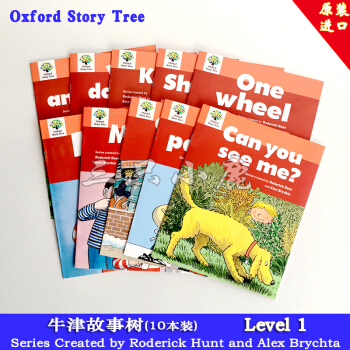
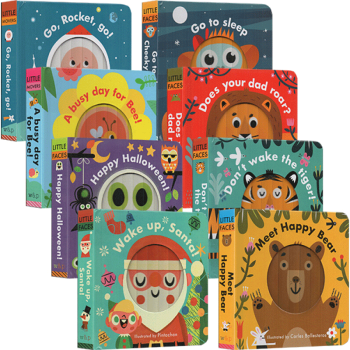



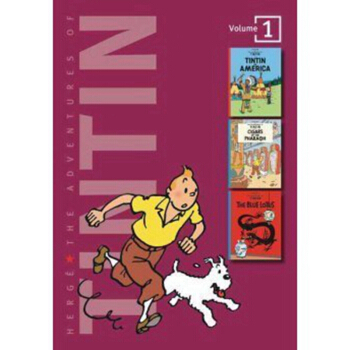



![[現貨]進口日文 偶像活動 アイカツフレンズ!公式ファンブック STYLE1 2018年4 pdf epub mobi 電子書 下載](https://pic.windowsfront.com/27006808605/5ac9e602Ne2c88b0f.jpg)
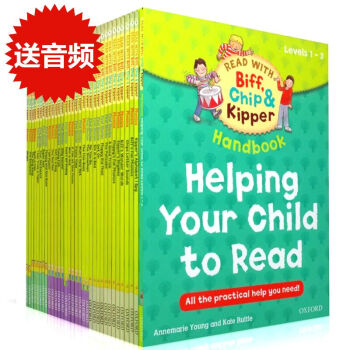

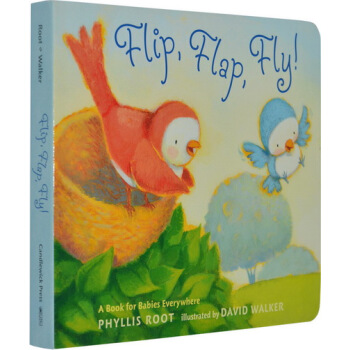

![Tokyo 11 英文原版 [平裝] pdf epub mobi 電子書 下載](https://pic.windowsfront.com/130000024608/5afcfa4dN10361200.jpg)
![Horrid Henry's Nits (Book and CD Pack) 淘氣包亨利的故事:虱子風波,書附CD [平裝] pdf epub mobi 電子書 下載](https://pic.windowsfront.com/19008106/rBEhVVKYRuwIAAAAABCpkNFnwQIAAGO6gH830wAEKmo451.jpg)